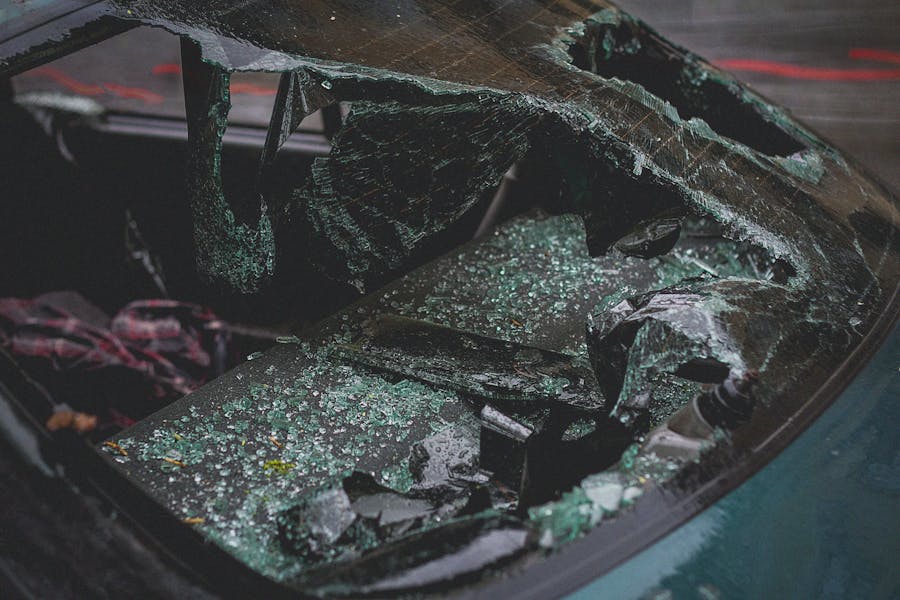Few situations feel more shocking or unfair than being in a car crash, only to watch the other driver speed away without stopping. A hit and run can leave you injured, confused, and wondering how you’ll cover medical bills or repair costs when the at-fault driver just disappears into traffic.
Are you feeling overwhelmed and unsure where to turn? You’re not alone, and more importantly, you still have rights and options. One of the smartest moves you can make after a hit and run is to seek expert legal counsel.
An experienced attorney can help you navigate insurance claims, preserve evidence, and fight for the compensation you deserve. We’ll break down the key steps to protect yourself and your legal rights after a hit and run crash, so you can focus on recovery instead of wondering what comes next.
Check for Injuries and Get Help Fast
Your health comes first, period. Immediately check yourself and any passengers for injuries. Call 911 if anyone is hurt, even if injuries seem minor at first. Adrenaline can mask pain, and what feels like a small bump could actually be something more serious.
Don’t try to chase the fleeing driver, no matter how angry or frustrated you feel. It’s unsafe and could actually complicate your legal situation later. Instead, stay at the scene and wait for law enforcement and medical help if needed. Getting prompt medical care also helps document your injuries, which becomes crucial if you pursue an insurance claim or lawsuit later. Think of it as protecting both your health and your legal case at the same time.
Become a Detective and Gather Every Detail
While waiting for help to arrive, collect every detail you can remember about the fleeing vehicle. Try to recall the color, make, and model of the car. Did you catch any part of the license plate number, even if it’s just a few letters or numbers? Write it down immediately before you forget.
Look for any distinctive features like dents, decals, bumper stickers, or tinted windows. Maybe the car had a cracked windshield or was missing a hubcap. These details might seem unimportant, but they could be the key to identifying the driver later.
Look around for witnesses and ask for their contact information and statements about what they saw. Don’t be shy about approaching people, most are willing to help in these situations. Also, check for nearby businesses or traffic cameras that may have captured footage of the crash. The more evidence you gather right now, the better chance authorities have of identifying the driver and the stronger your insurance claim will be.
File a Police Report No Matter What
Always report a hit and run to the police, even if the damage seems minor. Some people think it’s not worth the hassle if nobody got hurt, but that’s a mistake. A police report serves as official documentation of the incident and is often required for insurance claims.
Provide officers with every detail you collected, and make sure to ask for a copy of the report or at least the report number for your records. Be honest and factual about what happened, but don’t guess or exaggerate details you’re not sure about. This report can be crucial in proving your case if the other driver is later identified or if you need to pursue uninsured motorist benefits through your own insurance.
Contact Your Insurance Company Right Away
Contact your insurance company as soon as possible after a hit and run, ideally within 24 hours. Many policies require timely reporting, and delays could potentially jeopardize your coverage. Don’t assume they’ll be understanding if you wait a week to call.
Explain the circumstances clearly, provide the police report number, and share any photos or witness information you’ve gathered. Depending on your policy, uninsured motorist property damage coverage or collision coverage may help pay for your repairs and medical bills. Every policy is different, so understand what coverage you actually have.
Here’s something important: avoid giving recorded statements or accepting quick settlements without understanding your rights, especially if injuries are involved. Insurance companies often look for ways to minimize payouts, even when you’re the victim of someone else’s crime.
Consider Getting Legal Help Early
Hit and run cases can become complicated incredibly fast, especially if the driver is never identified or if your insurance company starts disputing your claim. An attorney experienced in hit and run cases can help track down potential evidence or witnesses you might have missed, handle communications with insurance companies, and ensure you’re pursuing every available source of compensation.
They can also protect your rights if a lawsuit becomes necessary down the road. Many personal injury lawyers offer free consultations and work on a contingency fee basis, meaning you don’t pay anything upfront. Expert legal counsel can make the difference between a denied claim and securing fair compensation for your injuries and damages.
Think about it this way: you’re dealing with the aftermath of someone else’s criminal behavior. Why should you have to navigate the complex legal and insurance processes alone when professional help is available?
Don’t Let Someone Else’s Crime Become Your Financial Burden
Being the victim of a hit and run crash can feel overwhelming and deeply unfair, but you’re definitely not without options. By staying calm, gathering evidence, filing a police report, notifying your insurer promptly, and seeking expert legal counsel, you can protect your health, your finances, and your rights.
Don’t let the other driver’s cowardly actions leave you footing the bill alone. With the right steps and professional help, you can navigate the aftermath of a hit and run and work toward getting the compensation you deserve. Remember, someone committed a crime against you, and you shouldn’t have to suffer the financial consequences of their actions.


